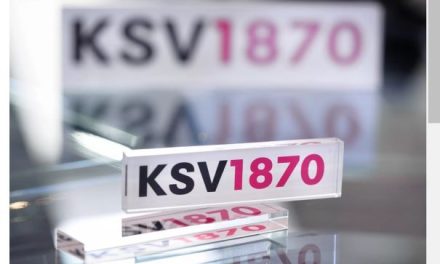ENJOIN LENDERS TO USE DATABASE FOR ASSESSING BORROWERS, MSMES
Credit Information Corporation (CIC), the state-run public credit registry and central repository of Filipinos’ credit information, marked the onboarding of its 106th Accessing Entity (AE) with the addition of Paramount Life & General Insurance Corporation, Malayan Bank, Community Rural Bank of Medellin (Cebu), Inc., and Hiyas Banking Corporation, together with other lending and financing companies.
Accessing entities are financial institutions authorized by the CIC to use its database in assessing the creditworthiness of their borrowers—both individuals and firms or the micro, small, and medium enterprises (MSMEs).
 “As of date, we have a total of 576 submitting entities in production, 106 of which are now accessing the CIC data for their risk assessment and credit-decisioning activities. And we believe that the CIC database—with almost 25 million unique borrowers—is a worthy investment for them at P10 per credit report inquiry,” CIC Senior Vice President for Business Development and Communications Atty. Aileen L. Amor-Bautista said.
“As of date, we have a total of 576 submitting entities in production, 106 of which are now accessing the CIC data for their risk assessment and credit-decisioning activities. And we believe that the CIC database—with almost 25 million unique borrowers—is a worthy investment for them at P10 per credit report inquiry,” CIC Senior Vice President for Business Development and Communications Atty. Aileen L. Amor-Bautista said.
The CIC SVP likewise shared that the list of CIC’s accessing entities is dominated by lending and financing companies and rural banks, where small business owners and microentrepreneurs reach out for capital.
Credit report: Reputational collateral for MSMEs
As part of its mandate to contribute to the improvement of the overall availability of credit especially to MSMEs, and to reduce the excessive dependence on collateral to secure credit facilities, the CIC continuously enjoins financial institutions to use its database to aid in the recovery of small business owners during and post-pandemic.
“MSMEs account for the bulk of employment in the country, and the CIC encourages lenders to utilize a data-backed approach in providing credit facility to Filipinos who are deemed to be creditworthy. The database of the agency has the capability to provide detailed profile, both positive and negative data, of an individual or business owner seeking loans,” Atty. Amor-Bautista shared.
The CIC also expressed its support to the initiatives of the national government, such as the advocacy of the Bangko Sentral ng Pilipinas (BSP) aimed at lowering loan costs through encouraging the microfinance industry to adopt digitalization.
SVP Atty. Amor-Bautista also shared how the CIC credit report was able to promote financial inclusion and risk-based lending especially during the COVID-19 pandemic: “Our AEs, specifically Toyota Financial Services and UnionBank of the Philippines, shared that they were able to grant revolving credit facility to entrepreneurs without requiring collateral because of their good credit standing.”
Going beyond compliance
Since 2020, the CIC has expedited the process of registration as an accessing entity through its web-based application system called the Covered Entity (CE) Portal where applicants may register, update, and submit documents online such as the Memorandum of Agreement (MOA), Accessing Entity Information Sheet (AEIS), and Secretary’s Certificate or Board Resolution.
“With this, we enjoin our submitting entities to go beyond compliance and make use of this important financial infrastructure. After all, this was created by law to help them reduce their credit risks,” the SVP continued.
The CIC’s submitting entities in production may register as an accessing entity upon continuous submission of at least six months’ worth of actual basic credit data of their borrowers to the CIC database.
Among the top accessing entities of the CIC for 2020 are Home Credit, Toyota Financial Services, AND Financing, Acom Consumer Finance, Credit Access Philippines Financing Company, UnionBank of the Philippines, Sterling Bank of Asia, Tulay sa Pag-unlad Inc. (TSPI), Camalig Bank Inc., and Perajet Lending Corporation
“In these trying times, we hope that financial institutions will make use of available credit information to help both sides—the lenders and the borrowers, especially the MSMEs who make up a significant percentage of the Philippines’ Gross Domestic Product (GDP),” Atty. Amor-Bautista ended.
 The Credit Information Corporation (CIC), a government-owned and controlled corporation, was created by Republic Act No. 9510, otherwise known as the Credit Information System Act (CISA). The primary mandate of CIC is to establish a comprehensive and centralized credit information system for the collection and dissemination of fair and accurate information relevant to, or arising from, credit and credit-related activities of all entities participating in the ecosystem.
The Credit Information Corporation (CIC), a government-owned and controlled corporation, was created by Republic Act No. 9510, otherwise known as the Credit Information System Act (CISA). The primary mandate of CIC is to establish a comprehensive and centralized credit information system for the collection and dissemination of fair and accurate information relevant to, or arising from, credit and credit-related activities of all entities participating in the ecosystem.
Source: Credit Information Corporation (CIC)


























